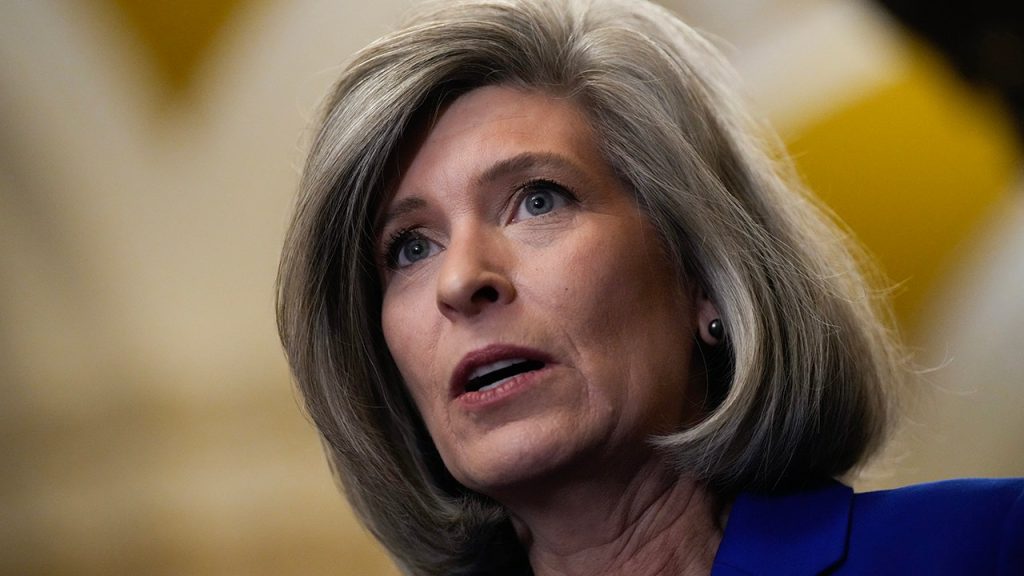Senator Joni Ernst, a combat veteran and influential member of the Armed Services Committee, finds herself in a precarious position as she navigates the confirmation process for President-elect Trump’s nominee for defense secretary, Pete Hegseth. Ernst’s stance carries significant weight, given her military background, her conservative credentials, and her history as a survivor of sexual assault who has championed legislation to address this issue within the military. Hegseth, a former Fox News host with military service in Afghanistan and Iraq, has faced scrutiny over allegations of drinking, sexual misconduct, and mismanagement of a veterans’ nonprofit. Ernst’s support, or lack thereof, could prove pivotal for Hegseth’s confirmation prospects.
Ernst’s initial meetings with Hegseth have been described as “frank and thorough,” and she has publicly stated her commitment to a fair hearing based on facts, not anonymous sources. She emphasizes Hegseth’s pledge to conduct a full Pentagon audit and appoint a senior official who prioritizes merit and strengthens efforts to prevent sexual assault in the military. While she has expressed her support for Hegseth “through this process,” she has stopped short of a full endorsement, leading to speculation about her ultimate decision. This cautious approach underscores the complexities of the situation and the potential political ramifications.
The pressure on Ernst mounts from various directions. Trump allies, notably Charlie Kirk, have issued thinly veiled threats of a primary challenge against Ernst in 2026 should she oppose Hegseth’s nomination. This highlights the intense loyalty demanded within Trump’s political sphere and the risks associated with dissenting from the president-elect’s preferences. Further complicating matters, Steve Deace, a conservative commentator in Iowa, has publicly expressed his willingness to challenge Ernst in a primary with Trump’s backing, further amplifying the potential consequences of her decision. Meanwhile, Brenna Bird, Iowa’s Attorney General and a staunch Trump supporter, has advocated for Hegseth’s confirmation, implicitly criticizing “D.C. politicians” who might oppose him.
This political maneuvering creates a complex dilemma for Ernst. She must balance her commitment to a thorough vetting process and her own legislative priorities, particularly regarding sexual assault in the military, against the potential backlash from within her own party. The threats of a primary challenge underscore the precarious nature of political calculations in the current climate, where loyalty to a particular figure can often outweigh other considerations. Balancing these competing pressures requires careful navigation and a nuanced understanding of the political landscape.
Veteran GOP strategist David Kochel, who played a key role in Ernst’s 2014 Senate campaign, has defended her measured approach, emphasizing her constitutional duty to advise and consent. He urges against pressuring a combat veteran and emphasizes the importance of allowing Ernst the space to fulfill her senatorial responsibilities. This perspective highlights the significance of the confirmation process and the need for senators to exercise their independent judgment without undue external influence.
President-elect Trump has publicly voiced his support for Hegseth, claiming strong and deep support for his nominee. However, reports suggest that Trump may be considering alternative candidates, including Florida Governor Ron DeSantis, should Hegseth’s nomination falter. Ernst’s name has also been mentioned as a potential replacement, though she has denied seeking the position. This fluidity surrounding the nomination process further complicates Ernst’s situation, adding another layer of uncertainty and political intrigue to the unfolding drama. The ultimate outcome will likely depend on a complex interplay of political factors, personal convictions, and the ongoing scrutiny of Hegseth’s background and qualifications.

